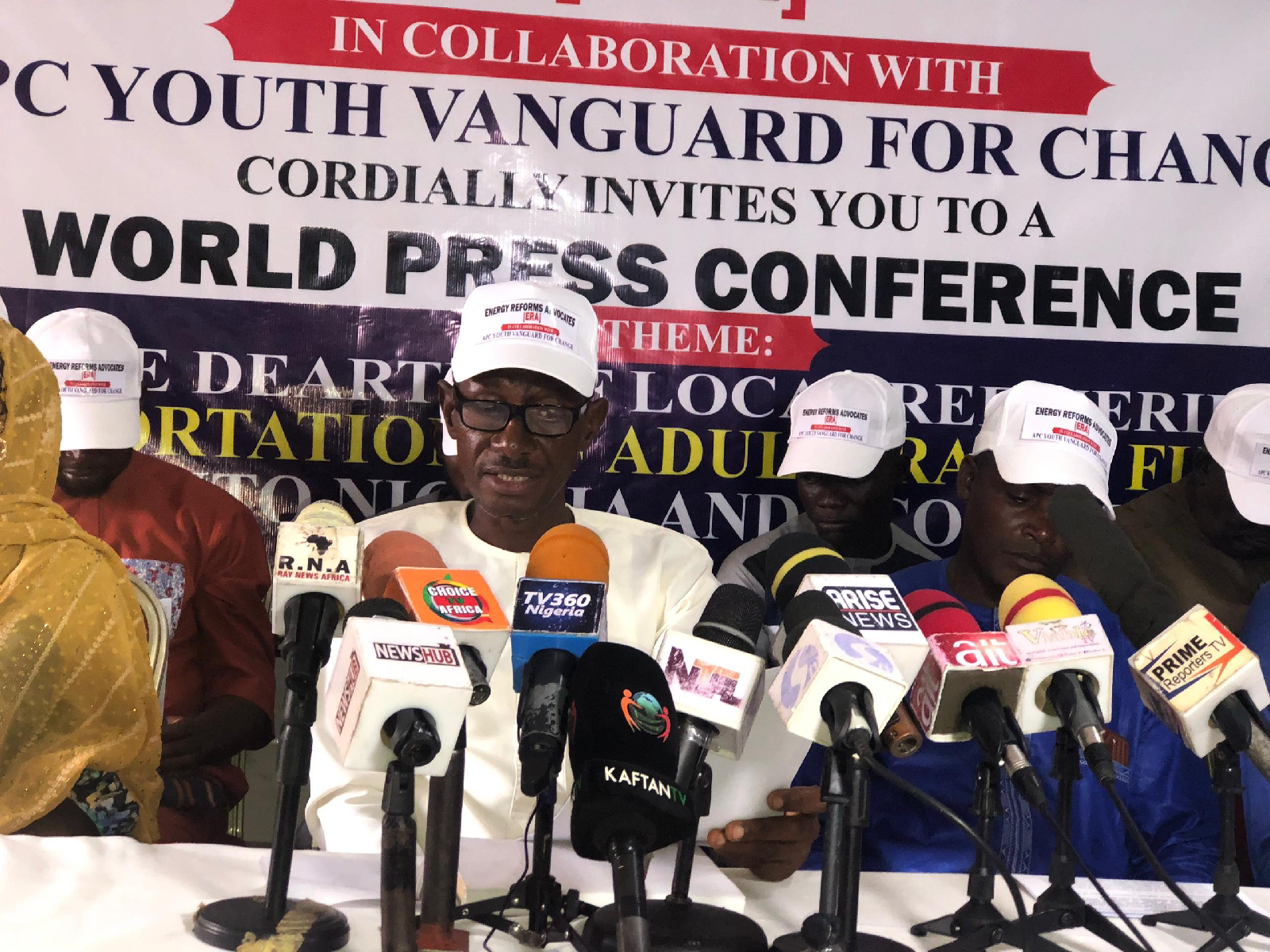... Warn NNPCL Against Continuous Importation Of Adulterated Fuel Into Nigeria
By Dansu Peter
The Energy Reforms Advocates of Nigeria, in collaboration with the APC Youth Vanguard for Change, have condemned the persistent failure of the Nigerian National Petroleum Corporation Limited (NNPCL) to restore the Port Harcourt and Kaduna refineries, despite massive investments.
The groups, at a press conference on Friday, also warned the Mele Kyari-lex NNPCL against the continuous importation of adulterated fuel into Nigeria.
The refineries' rehabilitation has been plagued by delays and unfulfilled promises, with $1.5 billion approved in 2021 for the Port Harcourt Refinery and an additional $1.4 billion for the Warri and Kaduna refineries.
NNPCL's Group Chief Executive Officer, Kyari, has repeatedly assured Nigerians of the refineries' imminent restoration, only to renege on these promises.
However, the advocates criticized Kyari's leadership, questioning the sincerity of his statements and citing concerns over the integrity of rehabilitation contracts.
In his address, Dr. Opialu Fabian alleged that certain entities within NNPCL might be intentionally obstructing progress to sustain the lucrative fuel importation business.
He highlighted the devastating impact of the refineries' failure on Nigerians, who face endless fuel queues, exorbitant prices, and inflated costs of goods and services.
Fabian demanded accountability from NNPCL, emphasizing the need for transparency in contract awarding and execution.
The advocates warned NNPCL against continuing to import adulterated fuel, which they claimed has drained Nigeria's foreign reserves, destabilized the currency, and harmed citizens.
They, however, called for a complete overhaul of the NNPCL executive team.
The statement partly reads: “We have chosen this moment to speak on behalf of Nigerians to highlight the ongoing, persistent challenges around the Port Harcourt, Warri, and Kaduna refineries.
“These failures, unfortunately, continue to place Africa’s largest oil producer in the ironic position of depending entirely on imported petroleum products for domestic consumption. This dependency has drained our nation’s foreign reserves, inflated fuel prices, and left Nigerians queuing endlessly at filling stations.
“The excuses provided by NNPCL are, unfortunately, repetitive. We have heard, time and again, explanations citing ‘obsolescence’ ‘corrosion’ and the ‘absence of baseline data for structural integrity verification’.
“It’s still fresh in our memory that Mr. Mele Kyari, the NNPCL’s Group Chief Executive Officer, announced on March 15 this year that the Port Harcourt refinery would begin production by the end of the month. Sadly, this was yet another unfulfilled promise, as we have not seen any production from the refinery. It begs the question: Are these statements made with sincerity, or are they merely attempts to pacify Nigerians with false hope?
“Today, the energy sector is a critical cornerstone of Nigeria’s prosperity. Our country, rich in crude oil, should be reaping the benefits of this resource through local refining, lower fuel prices, and foreign exchange conservation. Instead, the leadership at NNPCL continues to drain our economy by prioritizing importation, an act that not only places strain on our foreign reserves but also destabilizes our currency.
“We urge the government to reconsider the composition of NNPCL’s leadership. After more than three years of unfulfilled promises and costly mismanagement, it is evident that the current leadership lacks the vision and competence needed to drive Nigeria’s energy sector forward.
“Evidently, the path forward requires a new approach to how contracts are awarded, how funds are managed, and how performance is measured within NNPCL and the refineries.
“Therefore, we must demand that NNPCL provides Nigerians with a detailed account of the current state of the Port Harcourt, Warri, and Kaduna refineries. This report should include an outline of how funds have been utilized, reasons for the missed deadlines, and a clear, realistic timeline for when Nigerians can expect results.
“In conclusion, this is a critical moment for Nigeria, one that calls for action and resolve. We are no longer willing to stand by and watch as the nation’s potential is squandered by unaccountable leaders and inefficient practice”.

No comments